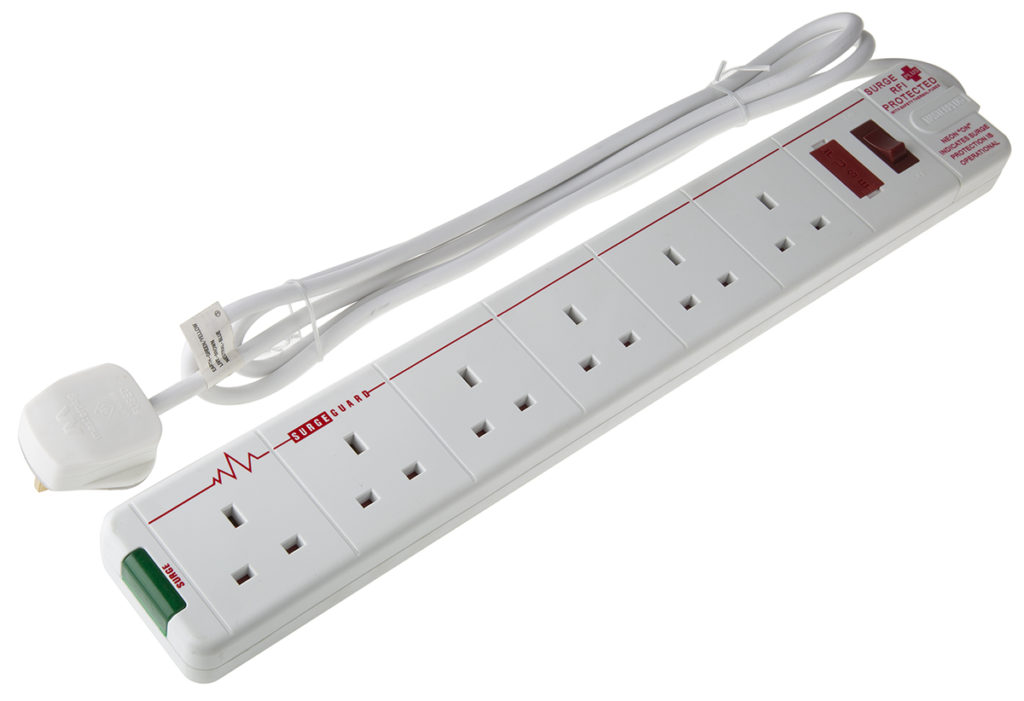What Exactly is a Power Surge?

Power surges are sudden spikes in electrical voltage that can damage or destroy electronic devices and appliances in your home. These spikes can occur for a variety of reasons, such as lightning strikes, electrical overloads, faulty wiring, or issues with the power grid. When the voltage exceeds the normal flow of electricity, it can cause an immediate burst of energy that your home’s electrical system may not be equipped to handle.
How to Prevent Power Surges in Your Home
Install Surge Protectors
- Use surge protectors for your electronics and appliances. These devices can absorb excess voltage and prevent it from reaching your valuable items.
Upgrade Your Electrical System
- Ensure your home’s electrical wiring is up-to-date and capable of handling modern energy demands. Faulty or outdated wiring can increase the risk of surges.
Unplug Devices During Storms
- If a storm is expected, unplug sensitive electronics and appliances. This simple step can protect them from potential lightning-induced surges.
Use a Whole-House Surge Protector
- Consider installing a whole-house surge protector. This device is installed at your electrical panel and provides protection for your entire home, blocking surges before they can cause damage.
Why Are Power Surges Dangerous for Your Home and Belongings?
Power surges pose significant risks to both your home and your belongings. The immediate effect of a surge can be the destruction of electronic devices, appliances, and even electrical outlets. The damage caused can be expensive, often requiring the replacement of costly items. Moreover, repeated exposure to small surges can degrade the internal components of electronics over time, shortening their lifespan. In severe cases, surges can also cause electrical fires, posing a threat to the safety of your home and family.
Is There a Typical Time That Power Surges Occur?
Power surges can happen at any time, but certain conditions increase their likelihood. Storms, especially those involving lightning, are a common cause of surges. Surges are also more likely when there are sudden changes in the power grid, such as during power outages or when electricity is restored. Additionally, the use of high-power appliances, such as air conditioners or refrigerators, can cause surges when they cycle on and off. These devices create a sudden demand for electricity, leading to fluctuations that can affect other electronics in your home.
Conclusion
Power surges are sudden spikes in electrical voltage that can cause significant damage to your home and belongings. Preventing surges involves installing surge protectors, upgrading your electrical system, unplugging devices during storms, and considering a whole-house surge protector. The dangers of surges include the destruction of electronics, shortened lifespans of devices, and potential electrical fires. While surges can occur at any time, they are more common during storms and power grid fluctuations.
Plugged In – We can help.
At Plugged In Electricians, we understand the importance of protecting your home from power surges. Our expert team can help you implement effective surge protection solutions to safeguard your electronics and appliances. Contact us today to learn more about how we can help you keep your home safe from electrical surges.
Visit our website at www.pluggedinelectricians.co.uk for your free desktop quote, or call us on 01524932524
If you’d like more information on Surge Protecting Devices, visit the IET Website at https://electrical.theiet.org
